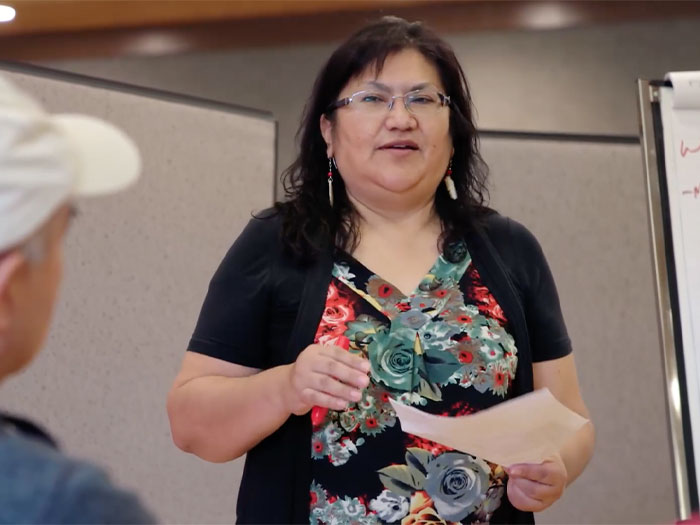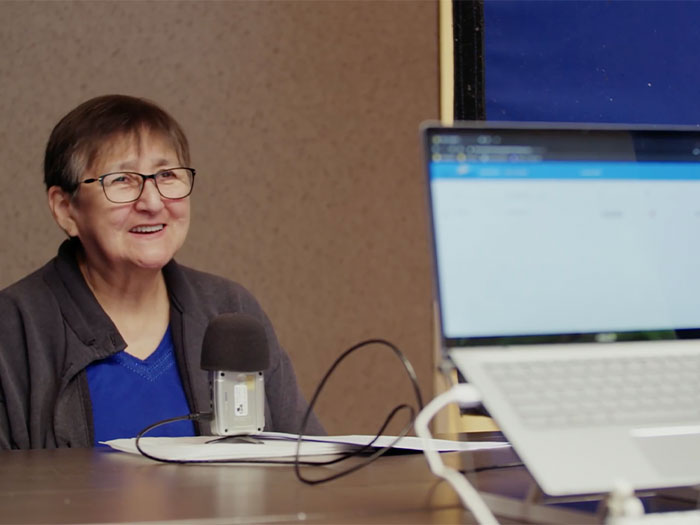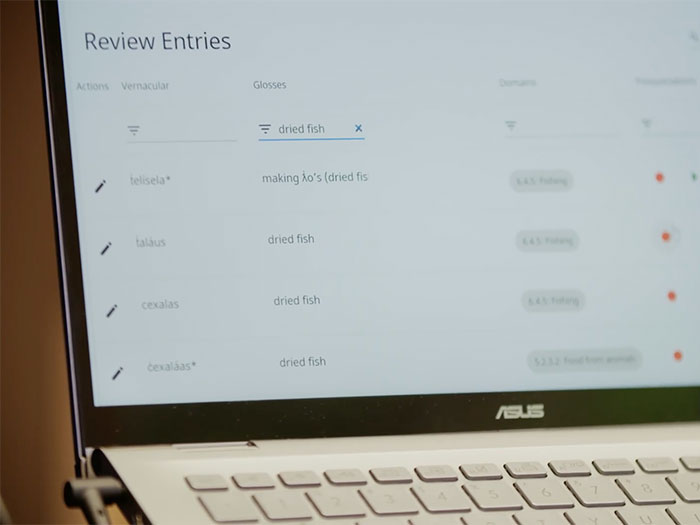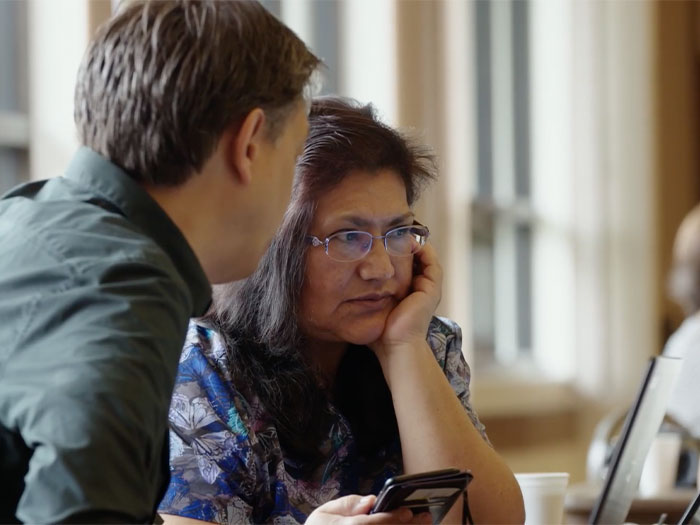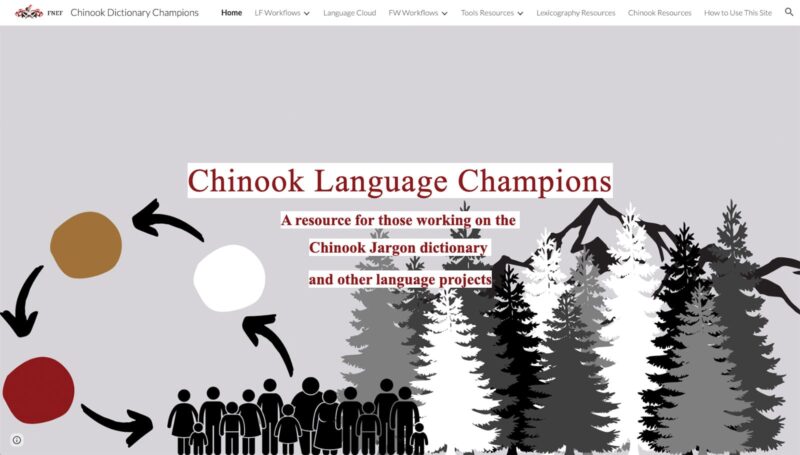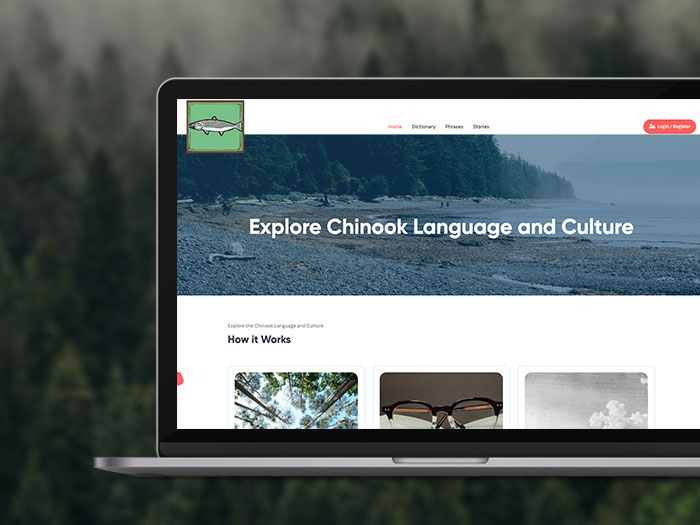
Case Study: The Chinook LanguageCloud
Normally, community-specific LanguageCloud platforms are private and exclusively used by the commissioning First Nations. However, using Chinook Wawa (a trade language shared among all peoples of the Pacific Northwest) we are able to provide a unique opportunity to publicly demonstrate a fully operational LanguageCloud. This allows communities to test and explore the platform's features with their own language revitalization projects in mind, offering valuable insights and a practical tool to aid in preserving their linguistic heritage.
Developed with the generous support of



About the Chinook Language
The Chinook trading language, commonly known as Chinook Jargon or Chinuk Wawa, spread in the Pacific Northwest during the 19th century as a pidgin language facilitating communication between Indigenous peoples, European settlers, and traders. Originating from the lower Columbia River region, the language evolved as a simplified means of communication for trade and cultural exchange. Chinook Jargon was likely already widely used pre-contact with European explorers and settlers, but gained many new words through trade with Europeans and spread to new territories in BC’s interior.
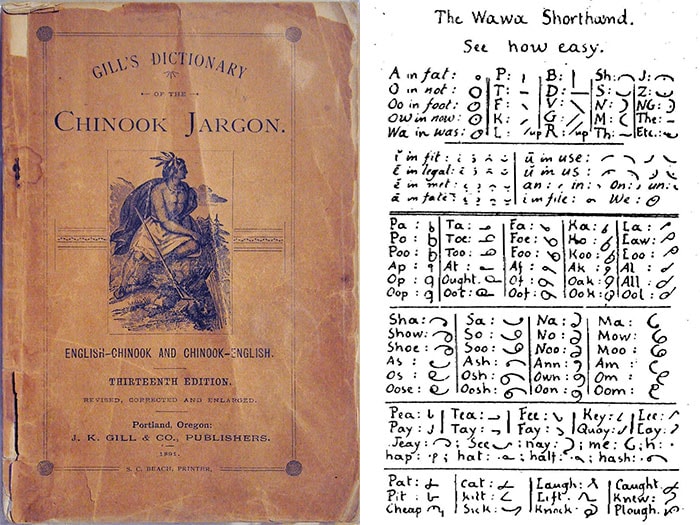
Left: Cover, Gill's Dictionary of the Chinook Jargon, 13th Edition, 1891. Photographed at Log House Museum, Seattle, Washington. Sourced from wikipedia.org/wiki/Chinook_Jargon.
Right: An example of the shorthand "Chinuk Pipa" writing system used in the Kamloops Wawa newspaper. Sourced from wikipedia.org/wiki/Chinook_Jargon.
Creating a Community LanguageCloud
Read more about how the FNEF collaborates with communities to create a platform like the Chinook LanguageCloud.
Request the sample LanguageCloud Software
The LanguageCloud software is 100% free to any nation interested in using it.
Tell us a little bit about your Nation, language and goals for the LanguageCloud software, and we will help get you set up with our software sample.
